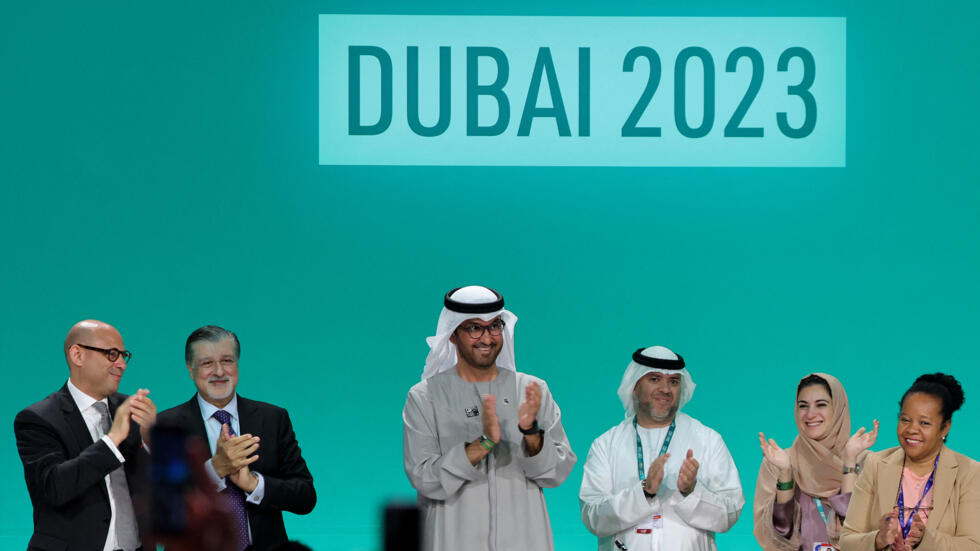United Nations climate negotiators directed the world on Wednesday to transition away from planet-warming fossil fuels in a move the talks chief called historic, despite critics’ worries about loopholes.
Within minutes of opening Wednesday’s session, COP28 President Sultan al-Jaber gaveled approval of the central document — the global stocktake that says how off-track the world is on climate and how it will get back on track — without asking for comments. Delegates stood and hugged each other.
“It is a plan that is led by science,’’ al-Jaber said. “It is an enhanced, balanced, but make no mistake, a historic package to accelerate climate action. It is the UAE consensus.”
“We have language on fossil fuel in our final agreement for the first time ever,” said al-Jaber, who’s also CEO of the UAE’s oil company.
United Nations Climate Secretary Simon Stiell told delegates their efforts were “needed to signal a hard stop to humanity’s core climate problem: fossil fuels and that planet-burning pollution. Whilst we didn’t turn the page on the fossil fuel era in Dubai, this outcome is the beginning of the end.”
Stiell cautioned people that what they adopted was a “climate action lifeline, not a finish line.”
The new deal had been floated early Wednesday and was stronger than a draft proposed days earlier, but had loopholes that upset critics. Analysts and delegates wondered if there was going to be a floor fight over details, but al-Jaber acted quickly, not giving critics a chance to even clear their throats.
Several minutes later, Samoa’s lead delegate Anne Rasmussen, on behalf of small island nations, complained that they weren’t even in the room when al-Jaber said the deal was done. She said that “the course correction that is needed has not been secured,” with the deal representing business-as-usual instead of exponential emissions-cutting efforts. She said the deal could “potentially take us backward rather than forward.”
When Rasmussen finished, delegates whooped, applauded and stood, as al-Jaber frowned and then eventually joined the standing ovation that stretched longer than his plaudits. Marshall Islands delegates hugged and cried.
The European Union’s delegation, which stood with small island nations in fighting for stronger language to rid the world of fossil fuels, instead celebrated the agreement as historic.
“I am in awe of the spirit of cooperation that has brought everybody together,” United States Special Envoy John Kerry said. He said it shows that multilateralism can still work despite what the globe sees with wars in Ukraine and the Middle East. “This document sends very strong messages to the world.”





